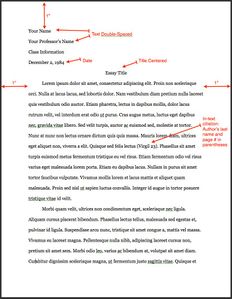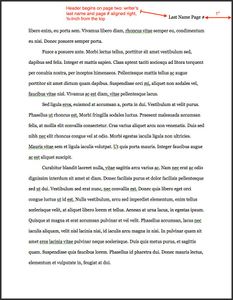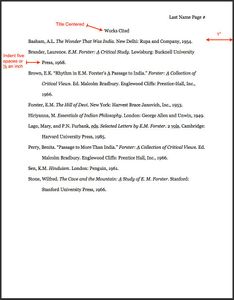TL;DR: Your work represents you. Everything you turn in for evaluation should exemplify the very best of your professional self. |
All assignments should be proofread, rhetorically appropriate, and illustrate your very best work: relatively free of errors, word-processed, and use the appropriate style for the medium.
Unless otherwise stated, every out-of-class assignment must be word-processed. I will not accept any hand-written assignments. In-class assignments will often be the exceptions to this rule. Often, too, I will request that assignments be submitted electronically via email, posted to an online medium, or some other way to be detailed in class.
Deadlines
Late work is unacceptable and will receive a zero. Technical, computer malfunctions are not acceptable excuses for late work. Plan ahead and turn in your work on time; if you do your work in a timely fashion, computer problems will not be a problem. If you class uses D2L, be aware of the D2L maintenance schedule and plan accordingly.
While I can often assist you with computer issues, please ask in plenty of time to receive an answer. There’s little I can do for you on the morning an assignment is due.
If circumstances persuade me into taking one assignment late, it will lose a letter grade. I will not take more than one assignment late. However, communication is key: talk to me during office hours if you have questions.
Online Courses
I try to have a bit more flexibility with deadlines in online courses, but the course pace and schedule should be maintained. Some assignments, like discussions, will have hard deadlines meaning that you will be unable to make them up if you miss them. I cannot reopen a forum for you. However, other assignments have more flexibility and can be submitted late with a proper explanation. If you’re ever unsure, communicate with me.
Please make every effort to turn in all assignments on-time. Getting behind in an online class is the surest way to failure.
University Closings
If the university is closed do to unforeseen circumstances, check the Forum or your specific course syllabus for general announcements and news.
Style
All documents written for paper will use MLA Style while those written for the screen will use a digital style. Note that these styles might dictate what types of resources you may use for research.
Digital Style
Documents written for the screen should use conventions associated for the screen and not those meant for paper. Follow the instructions for “Digital Citation” and use a digital style sheet when formatting documents. Digital documents differ from paper ones in several ways; be sure you know which citation style to use for documenting sources. See your individual syllabus for more.
MLA Style
All writing assignments printed on paper should be formatted according to the MLA Handbook for Writers of Research Papers. All writing assignments should follow these formatting guidelines, as dictated by the MLA’s style manual. Be sure that the following three items are formatted correctly for MLA:
- The formatting of the document
- The in-text citations
- The works cited page
All pages should have one-inch margins and use a 12-point, serif font, like Times New Roman, Georgia, or Goudy. A cover page is unnecessary; begin your document information on the top of the first page, including your name, your professor’s name, the course information, and the assignment due date. Center the title next, then begin immediately with your introductory paragraph. Page two will begin your running header, aligned right, and including your last name and page number.
Most assignments will increase their credibility by including secondary sources. These sources are otherwise known as research. To be credible, they usually consist of books, articles in academic periodicals, and approved web sites. All documents written in this format — i.e., meant to be read on paper — must also use research that was found on paper.[1]
To correctly and completely cite these courses, the document must contain both an in-text, parenthetical citation and a works cited entry. The in-text citation usually contains the author’s last name followed by the page number(s) where the information is contained.
Information that needs to be cited includes direct quotations and paraphrased ideas. Quotations should be kept to a minimum, and longer quotations — those that exceed three lines — should appear as blocked quotations.
The gallery above is only an overview of the MLA format style; please consult the most recent MLA Handbook for Writers of Research Papers for complete details of how to format in-text citations and works cited pages. When in doubt: look it up.[2] Guessing at the proper format will only negatively affect your final grade. Remember to be precise.
Rewrites
Rewrites are an integral part of the writing process, so students are encouraged to revise and rewrite assignments. See your specific syllabus for rewrite guidelines as they may differ from class to class.
A word about grades: I don’t consider grades to be permanent—most writing assignments can be improved and therefore, so can a grade. However, if you miss an assignment, please communicate with me that you intend to make it up and what your time frame is for completion. Communication is key here. |
The professor must assign and approve all rewrites in regular session courses; online sessions may rewrite any major assignment. All rewrites must follow the format conventions outlined under this policy. Whenever you turn in a rewrite, always include a copy of the previously graded assignment with my comments.
For traditional face-to-face classes: No rewrites will be accepted unless they have been (1) assigned by me, the professor, or (2) approved beforehand by me. There will be no exceptions to this rule. Online courses may rewrite any major writing assignment. See your individual syllabus for more information.
Extra Credit
Occasionally, I will offer the whole class a chance to raise their grades with extra credit or optional assignments. I do not offer extra credit to individuals, especially those coming to me in the latter days of the semester or those who are missing work. If you make the effort to turn in the work I assign, there should be no need for extra credit.
Accessibility
Students seeking ADA accommodations must contact Middle Georgia State University Office of Accessibility Services in Macon at (478) 471-2985 or in Cochran at (478) 934-3023.
notes
- ↑ Depending on the class, there might be exceptions to this rule.
- ↑ The Purdue OWL is helpful for this.




